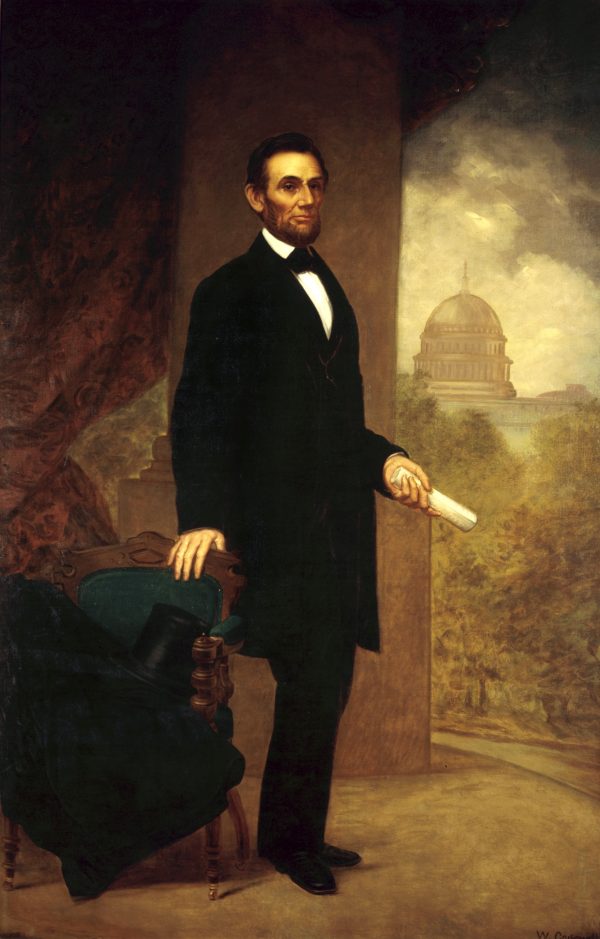The National Affairs Podcast: Diana Schaub on Lincoln at Gettysburg
Diana Schaub, Devorah Goldman, & Daniel Wiser Jr.
National Affairs assistant editors Devorah Goldman and Daniel Wiser, Jr. spoke with JMC fellow Professor Diana Schaub on her essay on Lincoln’s Gettysburg Address from the Spring 2014 issue of National Affairs.
Visit the National Affairs website >>
Lincoln at Gettysburg
Diana Schaub
National Affairs, Spring 2014
 “The most obvious problem in approaching Abraham Lincoln’s Gettysburg Address is that we know it so well. If you’ve received a good education, you might even be able to recite it from memory. Everyone knows the irony of that line where Lincoln says “the world will little note, nor long remember what we say here” — ironic because his brief dedicatory remarks have become the most famous American speech.
“The most obvious problem in approaching Abraham Lincoln’s Gettysburg Address is that we know it so well. If you’ve received a good education, you might even be able to recite it from memory. Everyone knows the irony of that line where Lincoln says “the world will little note, nor long remember what we say here” — ironic because his brief dedicatory remarks have become the most famous American speech.
In fact, the Gettysburg Address must rank high among the greatest speeches anywhere. It is right up there with the Apology of Socrates and the Funeral Oration of Pericles, with the added benefit that Lincoln’s was actually written and delivered by him, whereas the speeches by Socrates and Pericles come to us secondhand, so to speak, from Plato and Thucydides. Those ancient Greek speeches may or (more likely) may not have actually been delivered in the literary form in which they have become immortal. By contrast, Lincoln’s speech arrived at its fame without editorial assistance. Phrases from the Gettysburg Address crop up all over. Article 2 of the French Constitution, for instance, states that “The principle of the Republic shall be: government of the people, by the people and for the people.” American presidents, and none more than President Obama, pay homage to Lincoln’s formulations by borrowing shamelessly from him, sometimes with attribution, sometimes not….”
Read the full essay from National Affairs here >>
 Diana Schaub is a Professor of Political Science at Loyola University Maryland and a contributing editor at New Atlantis. She is a member of the Hoover Institution’s Jill and Boyd Smith Task Force on the Virtues of a Free Society. In 2001, she was the recipient of the Richard M. Weaver Prize for Scholarly Letters and from 2004 to 2009 she was a member of the President’s Council on Bioethics. Professor Schaub is the author of Erotic Liberalism: Women and Revolution in Montesquieu’s Persian Letters (Rowman and Littlefield, 1995), along with a number of book chapters and articles in the fields of political philosophy and American political thought. She is a co-editor of What So Proudly We Hail: The American Soul in Story, Speech, and Song (ISI, 2011). Professor Schaub’s work has also appeared in National Affairs, The New Criterion, The Public Interest, The American Enterprise, the Claremont Review of Books, Commentary, First Things, The American Interest, and City Journal.
Diana Schaub is a Professor of Political Science at Loyola University Maryland and a contributing editor at New Atlantis. She is a member of the Hoover Institution’s Jill and Boyd Smith Task Force on the Virtues of a Free Society. In 2001, she was the recipient of the Richard M. Weaver Prize for Scholarly Letters and from 2004 to 2009 she was a member of the President’s Council on Bioethics. Professor Schaub is the author of Erotic Liberalism: Women and Revolution in Montesquieu’s Persian Letters (Rowman and Littlefield, 1995), along with a number of book chapters and articles in the fields of political philosophy and American political thought. She is a co-editor of What So Proudly We Hail: The American Soul in Story, Speech, and Song (ISI, 2011). Professor Schaub’s work has also appeared in National Affairs, The New Criterion, The Public Interest, The American Enterprise, the Claremont Review of Books, Commentary, First Things, The American Interest, and City Journal.
Professor Schuab is a JMC faculty partner.
Learn more about Diana Schaub >>
![]()
![]() Follow us on Facebook and Twitter for updates about lectures, publications, podcasts, and events related to American political thought, United States history, and the Western political tradition!
Follow us on Facebook and Twitter for updates about lectures, publications, podcasts, and events related to American political thought, United States history, and the Western political tradition!
Want to help the Jack Miller Center transform higher education? Donate today.
